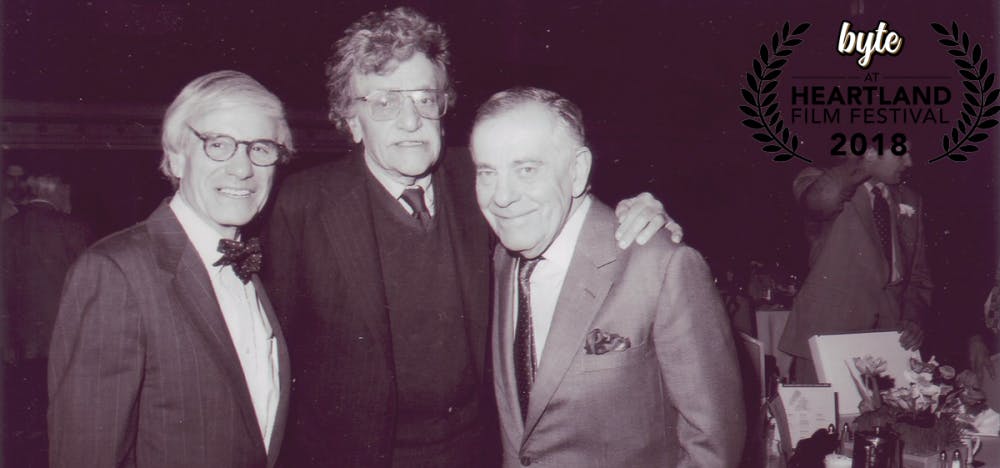by Tanner Kinney When thinking about famous Hoosiers, there aren’t too many people who come to mind. Orville Redenbacher is one, since the popcorn is so tasty. Three people (including me) may consider former Indiana governor Paul V. McNutt as a legendary Hoosier as well. The point is, the list isn’t very long. On that short list, however, is legendary American writer Kurt Vonnegut. Author of strangely dark and satirical novels like Slaughterhouse-Five or Cat’s Cradle, Vonnegut is a genuinely unique and interesting person who moved through the world in his own way, and this documentary titled God Bless You, Mr. Vonnegut helps paint that picture. Unfortunately, the great subject matter of the documentary is anchored down by some rough filmmaking and editing. This documentary doesn’t follow a traditional documentary structure, especially the structure of documentaries about living people. In its essence, God Bless You, Mr. Vonnegut is more of a series of only somewhat connected anecdotes, presented in no particular order with only a sort of overarching “theme” for each selection of anecdotes. The sections are divided by readings of Vonnegut’s writing, short Vonnegut-esque songs composed and performed by Kurt Vonnegut Jr., or clips of Kurt Vonnegut himself at panels or other events. These breaks between sections, strangely enough, were some of my favorite bits of the documentary since they have a more direct look into Vonnegut’s mind. This aimless structure, where-in Vonnegut’s death is discussed about halfway through the documentary and then never really mentioned again, seems to be an artistic decision emulating the style of the man himself. That’s an interesting concept, but in terms of the experience watching the documentary, it was a tough sell for me. What works in a short story or novel doesn’t necessarily translate well into a documentary, and that’s the case with God Bless You, Mr. Vonnegut. There was no hook to keep viewers fully-engaged throughout the documentary, although the clips of Vonnegut himself definitely tried to do that. Compared to the documentary I saw later in the day, Howard, it was night-and-day the difference proper structure makes. The other major problems with this documentary come from the cinematography and editing. The camera-work is fine (aside from a couple questionable angles), and the quality of the film is there. Yet, there were times during the film where it seemed clips would drop to half the framerate of what was around it, as if it was being shot with two different quality cameras. Sometimes this would happen during a clip of someone, where it would start with them talking and the framerate would look like it was stuttering briefly before eventually correcting itself. I couldn’t tell if it was a problem with the projector or the film itself, but it was definitely jarring and continuously noticeable. The editing, however, doesn’t get the benefit of the doubt. God Bless You, Mr. Vonnegut genuinely looked like it was thrown together in Premiere over the course of a week or so. I know this because it had a lot of techniques that I used when I made a short documentary in a caffeine-fueled evening. There is so much uninspired B-roll within the film, some of it seemingly disconnected from what’s being discussed. On top of that, anytime an image is shown within the film, it uses the same cut-and-paste editing effects over-and-over. I get there’s only so much you can do when there’s so little actual footage of the man himself, but there isn’t anything unique within the production of the documentary. The man himself may be a unique individual, but the pieces that make up his documentary don’t match his energy. Despite all of that though, there are still enough great moments and fun anecdotes about Kurt Vonnegut that consistently made me smile. A personal favorite was in a clip of Vonnegut at a panel where he’s asked the question: “Why are we put on this Earth to suffer and die?” After a minute or so of silence Vonnegut responds, “That’s show business,” and then walks off-stage. These little moments of brilliance make the documentary worth watching for someone interested in learning more about Kurt Vonnegut as a person, but in terms of filmmaking, it’s a rough film to sit through.




















